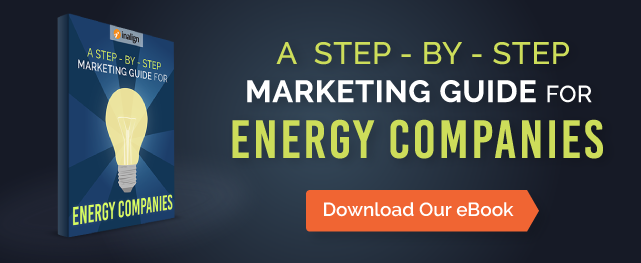A recent decision by the New York State Public Service Commission (PSC) will significantly change the way retail energy suppliers sell to residential and small commercial consumers.
The PSC’s new rules require energy service companies (ESCOs) to guarantee that residential and small commercial customers will pay no more for natural gas and electricity than they would pay to their utility.
The leading organization for competitive energy suppliers says the sweeping decision is an unprecedented action that will effectively end retail energy choice for the state’s residential and small commercial consumers.
A state Supreme Court judge, siding with the industry, has issued a temporary restraining order preventing the PSC from implementing the new rules and will hear arguments on April 14th.
What Are the New Rules?
According to the PSC’s Order and Compliance Guidance Document, ESCOs serving New York residential and small commercial markets must:
- Guarantee new and renewing customers that they will pay no more for gas and electricity than they would have paid to their utility or, for customers who choose a “green” electric product, the ESCO must guarantee that at least 30 percent of the electricity is from renewable energy sources.
- Not offer value-added services or fixed-rate supply products at this time unless they comply with the provision above.
- Have their CEO certify that their company will comply with the PSC’s new rules.
The PSC will also strengthen and consider what conditions should be required for ESCOs to be eligible to operate in the state. In addition, a “do not knock” rule will be enforced on door-to-door solicitations.
Who is Affected by the New Rules?
There are about 200 ESCOs eligible to provide gas and electricity in the state. These companies serve approximately 20 percent of the state’s residential and small commercial energy customers. New York State has 7 million residential electric customers and 4.3 million residential natural gas customers.
Why Did the PSC Issue New Rules?
The new rules are an outcome of an industry-wide review conducted by the PSC. According to the Governor’s press release, “This review found that multiple energy service companies, or ESCOs, were overcharging for electric and gas service, as well as failing to deliver on promises for savings and clean energy.”
What is the Industry’s Response?
According to the Retail Energy Supply Association (RESA), the nation’s organization for retail energy suppliers, the PSC’s rules “would effectively end a customer’s option to choose what energy products and pricing plans best suit his or her needs.”
The RESA recognizes that the PSC’s actions were partly a response to a few bad actors. They believe the PSC should have taken action under its existing authorities to go after rule violators rather than issue new rules that will eliminate retail energy competition.
The industry also recognizes that the main goal is to improve the retail energy marketplace in New York State and hopes to work with the PSC to develop appropriate responses to the issues.
What Can Marketers Do?
While it is unclear at this time what rule changes will ultimately prevail in New York State, retail energy marketers need to be prepared to show their CEOs and CFOs which marketing channels perform best at delivering customers and the cost to acquire new customers.
By tracking and measuring such metrics as customer acquisition cost (CAC) and customer lifetime value (LTV) you can readily determine the return on investment (ROI).
For example, if it costs $250 to acquire a new customer and each new customer pays you $1,000 over their lifetime as a customer, your LTV:CAC ratio is 4:1, which is a pretty good return on investment.
If you aren’t tracking the right marketing metrics or don’t know how effective your marketing and advertising campaigns are, a data-driven marketing approach such as inbound marketing can help.
Inbound marketing techniques and best practices – which focus on the way today’s consumers learn, shop and buy – can easily be applied to traditional marketing activities to produce better results and actionable data.
In our article “Retail Energy: How to Get Better Results From Your Marketing Activities,” we explain how inbound marketing can be adapted to deliver better results from:
- TV and Radio Advertising
- Print Ads
- Direct Mail
- Door-to-Door Sales
- Digital Advertising
- Trade Shows and Events
- Cold Calling
Conclusion
New rules in New York State, that are being challenged by industry groups, would significantly alter how ESCOs can operate and sell to residential and small commercial natural gas and electricity customers. A requirement to sell energy products at a price no greater than what utility’s charge would challenge profitability.
In light of the PSC’s decision, ESCO marketers need to be prepared to quantify the ROI of current marketing strategies. A data-driven marketing approach, such as inbound marketing, can help assess marketing and advertising effectiveness and deliver better results and actionable data.








